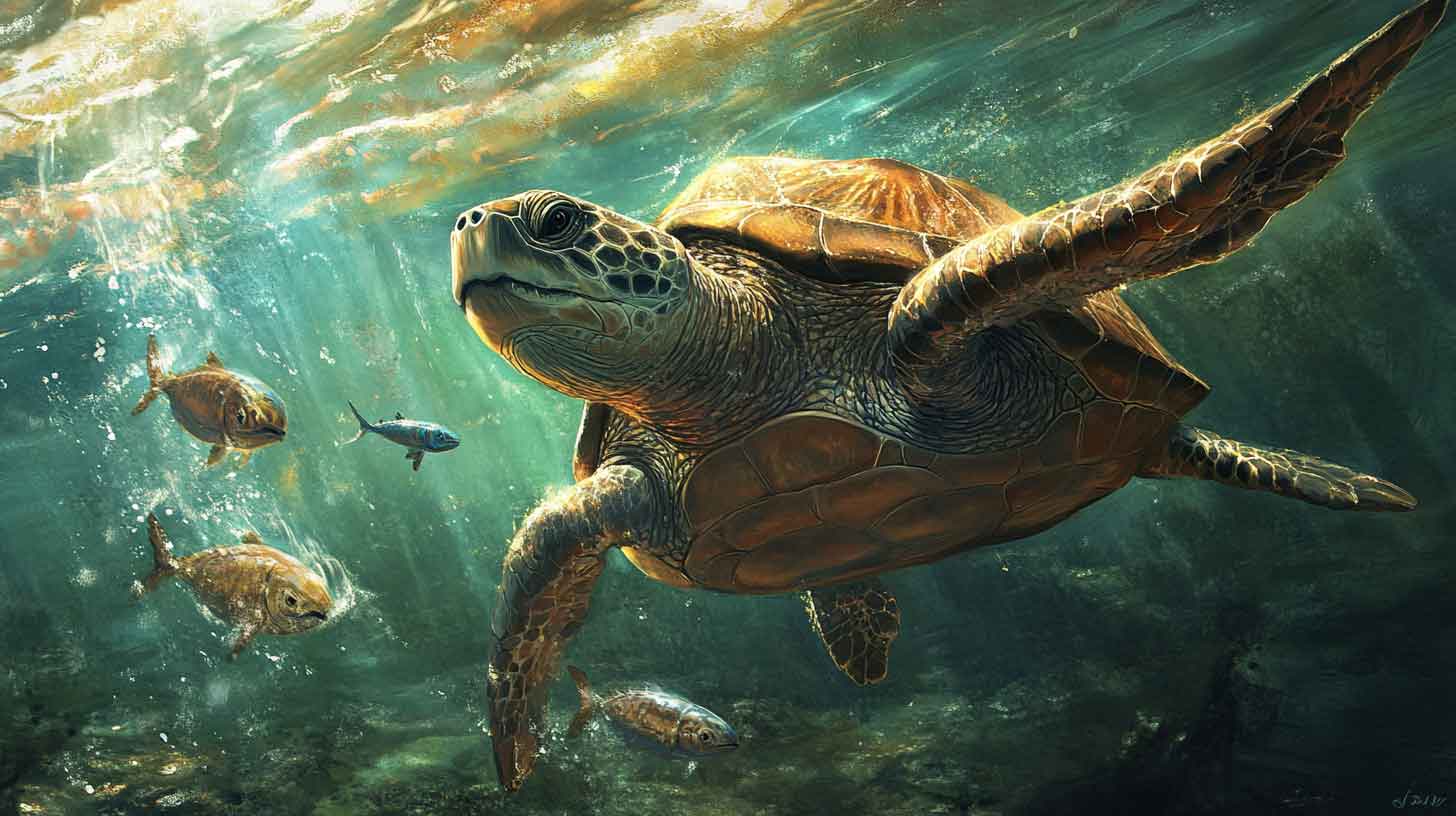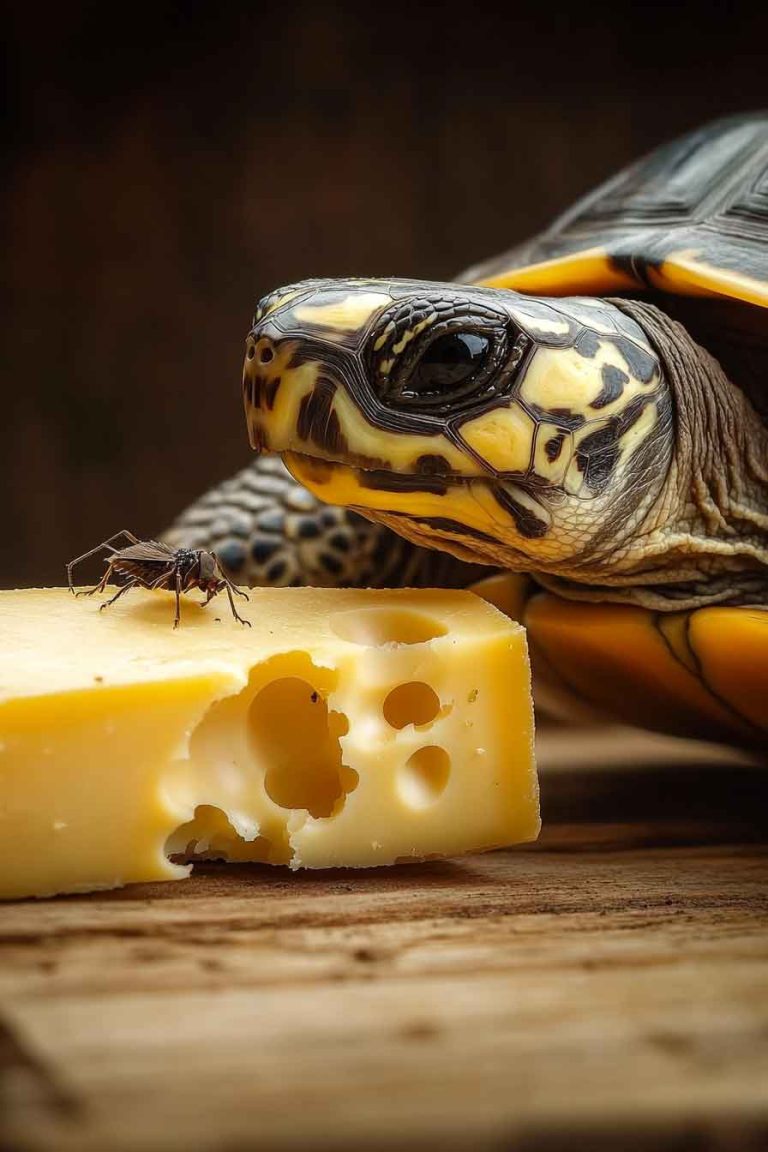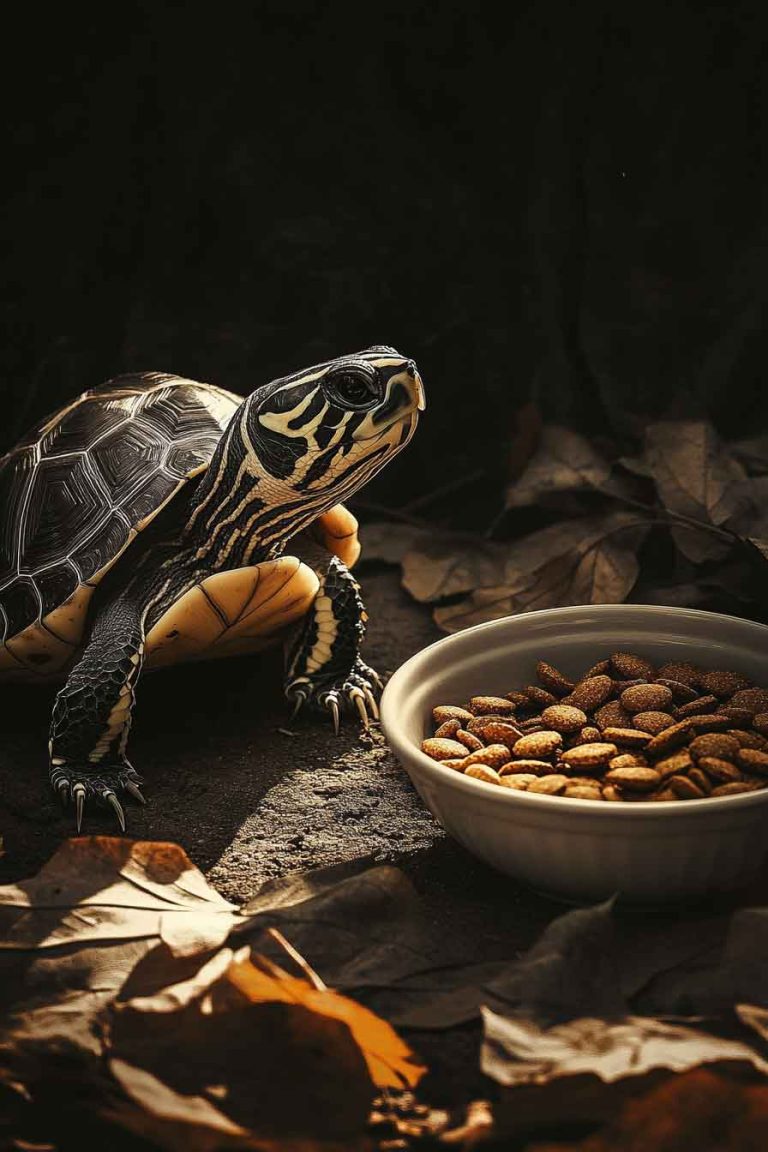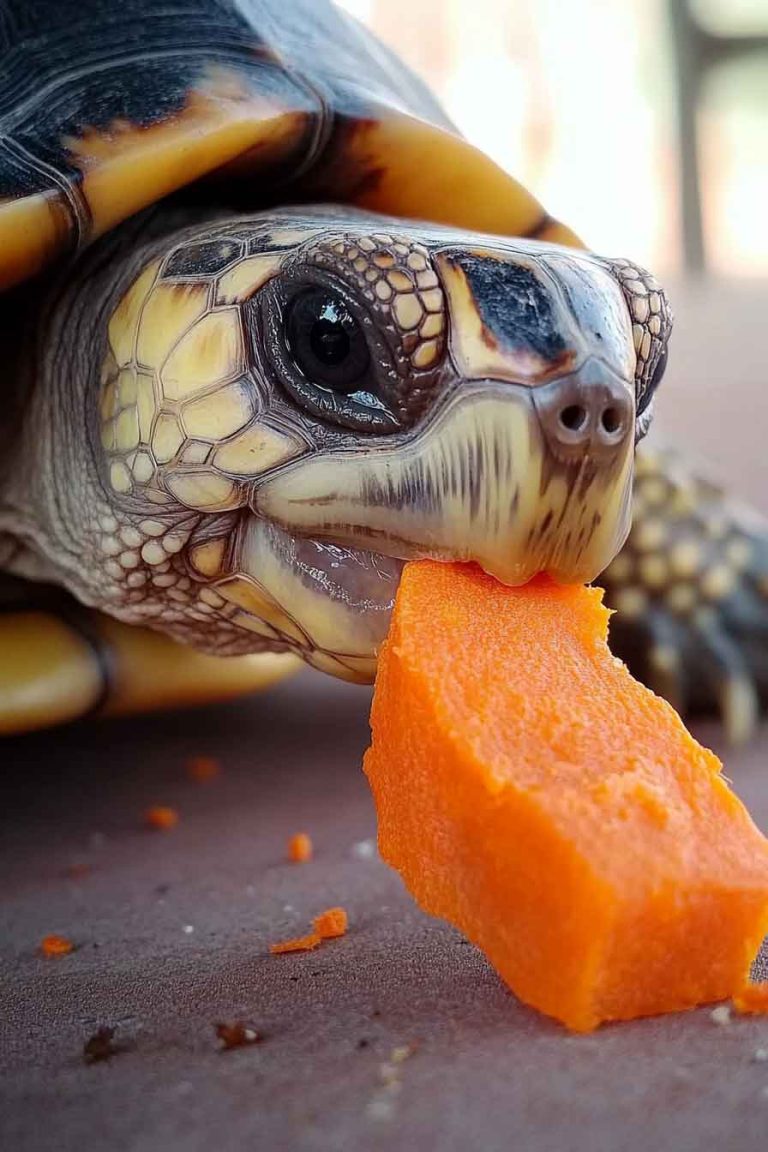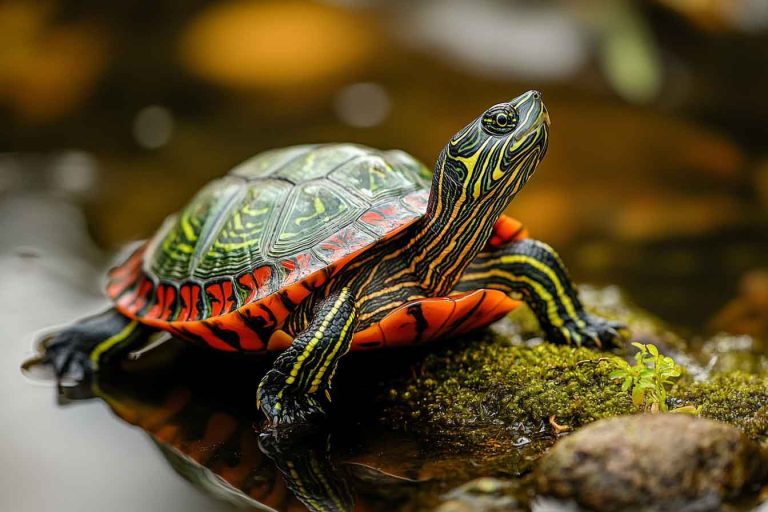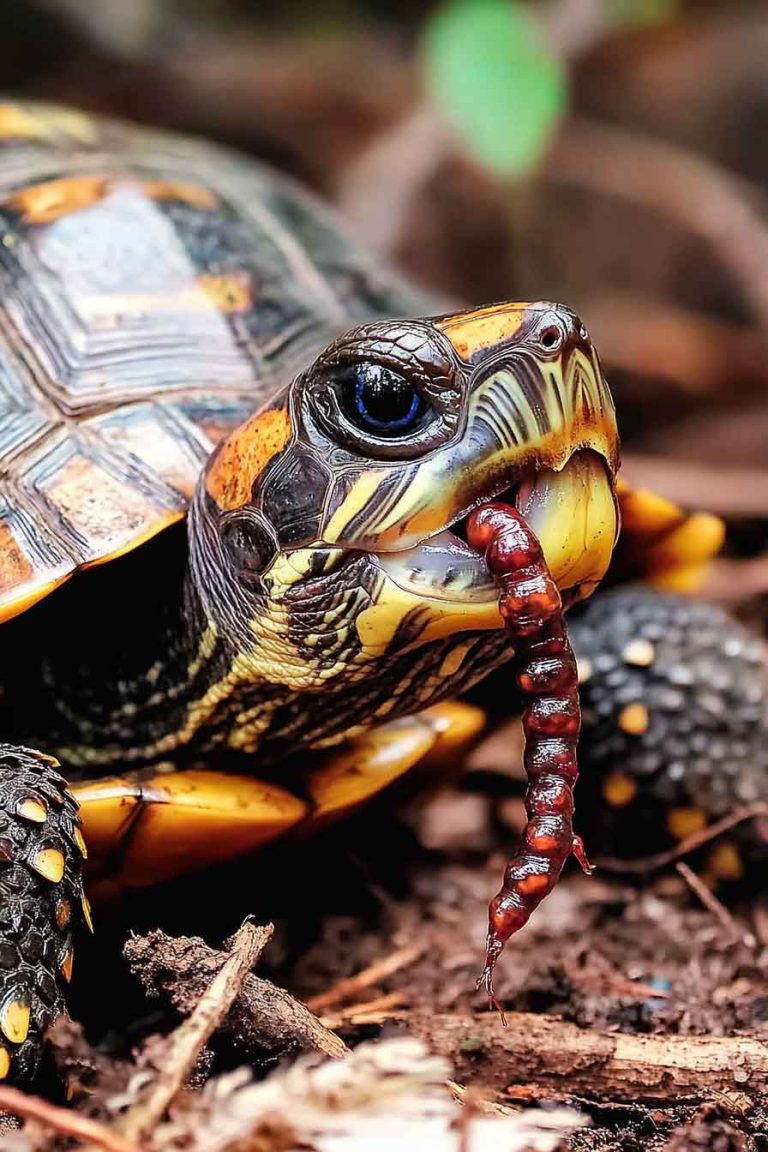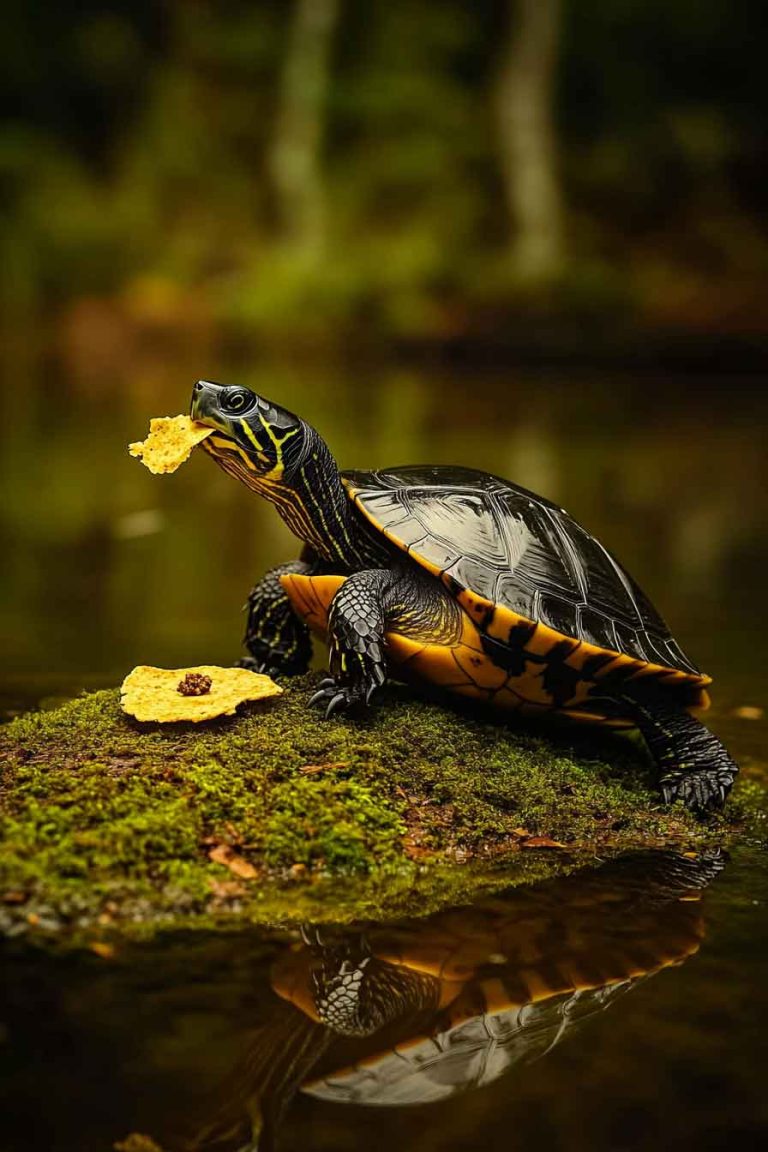Can Turtles Eat Tuna? (Is Tuna Safe for Your Pet Turtle)
As a turtle owner, I know how tempting it can be to share our favorite foods with our shelled companions. When I’m enjoying a tuna sandwich or opening a can of tuna for lunch, I often wonder if my pet turtle might enjoy this protein-rich fish too. It’s a natural thought – after all, many…
As a turtle owner, I know how tempting it can be to share our favorite foods with our shelled companions. When I’m enjoying a tuna sandwich or opening a can of tuna for lunch, I often wonder if my pet turtle might enjoy this protein-rich fish too. It’s a natural thought – after all, many turtles are omnivores and do eat fish in the wild.
So, can turtles eat tuna? The answer is yes, but with important limitations. Turtles can eat tuna occasionally as a treat, but it should never be a regular part of their diet. Fresh tuna is better than canned, and if you do offer canned tuna, it must be in water, not oil, and with no added salt or seasonings.
In this article, I’m going to share everything I’ve learned about feeding tuna to turtles, including the risks, benefits, and safer alternatives. Keep reading if you want to make the best dietary choices for your turtle friend.
Can You Feed Tuna To Your Pet Turtle?
The short answer is – yes, but very sparingly. Since tuna is a fish, many people assume it’s automatically good for turtles. While some turtle species do eat fish naturally, tuna presents several concerns that I want you to be aware of.

Turtles have specific dietary requirements that differ significantly from our own. Let me break down the nutritional content of 100 grams of canned tuna in water to help you understand why moderation is key:
Protein: 25.5 g
Fat: 0.8 g
Sodium: 339 mg
Mercury: Variable (0.1-0.5 ppm average)
Phosphorus: 200 mg
Calcium: 11 mg
Vitamin D: 154 IU
Vitamin B12: 2.5 mcg
Iron: 1.02 mg
Looking at this nutritional profile, I can see several red flags for turtle health. The high sodium content is particularly concerning, as turtles don’t handle excess salt well. The calcium to phosphorus ratio is also problematic – turtles need about a 2:1 calcium to phosphorus ratio, but tuna provides the opposite.
Most importantly, tuna contains mercury, which can be toxic to turtles when consumed regularly. Large fish like tuna accumulate mercury in their tissues, and this heavy metal can cause serious health problems for your pet.
Do Turtles Like Tuna?
From my experience and observations, many turtles do seem to enjoy the taste of tuna when offered. The strong fishy smell and flavor can be quite appealing to them. However, just because they like it doesn’t mean it’s good for them – much like how we might crave junk food that isn’t healthy for us.
I’ve noticed that turtles often show excitement when they smell fish, and tuna’s potent aroma can definitely catch their attention. But as responsible pet owners, we need to look beyond what they want and focus on what they need for optimal health.
Health Risks for Turtles Eating Tuna
While tuna isn’t as immediately dangerous as some foods, regular consumption can lead to several serious health issues. Let me walk you through the main concerns I’ve identified:
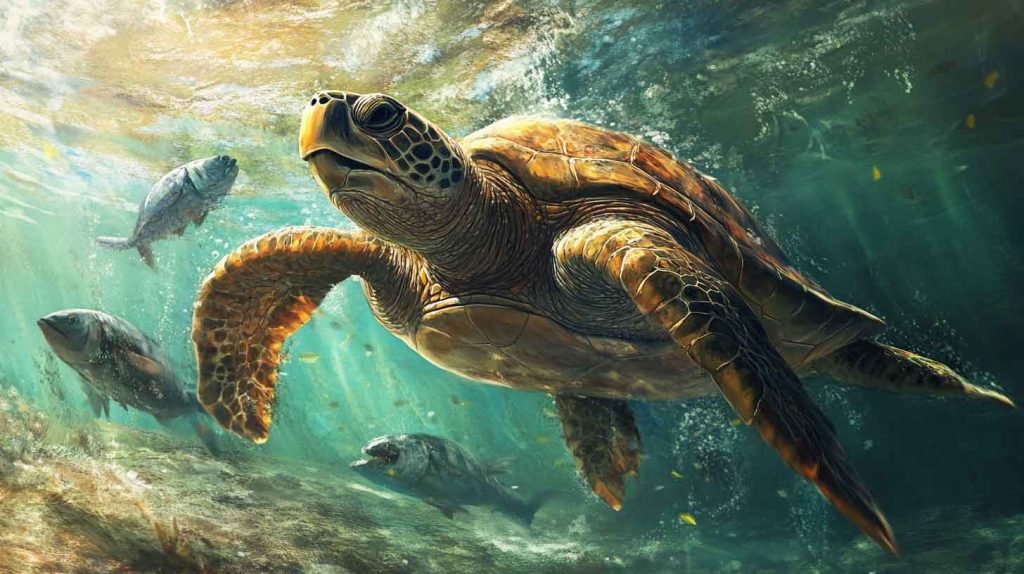
Mercury Poisoning
This is my biggest concern with feeding tuna to turtles. Mercury accumulates in the body over time and can cause neurological problems, kidney damage, and developmental issues. Turtles are particularly sensitive to heavy metals, and their long lifespans mean they have more time for toxins to build up in their systems.
Even small amounts of mercury can be problematic when consumed regularly. I always tell fellow turtle owners that the risk simply isn’t worth it when there are so many safer protein options available.
Sodium Overload
Turtles don’t need much sodium in their diet, and too much can lead to dehydration, kidney problems, and shell issues. Canned tuna, even when it’s labeled as “low sodium,” typically contains far more salt than turtles should consume.
I’ve seen cases where turtles fed high-sodium foods developed kidney stones and other urinary tract problems. The turtle’s kidneys simply aren’t designed to process large amounts of salt efficiently.
Nutritional Imbalances
The improper calcium to phosphorus ratio in tuna concerns me greatly. When turtles consume too much phosphorus relative to calcium, it can lead to Metabolic Bone Disease (MBD). This condition causes:
- Soft, deformed shells
- Brittle bones
- Difficulty moving
- Increased susceptibility to fractures
I’ve witnessed the devastating effects of MBD in turtles, and it’s entirely preventable with proper nutrition.
Thiamine Deficiency
Some fish, including certain preparations of tuna, contain thiaminase – an enzyme that breaks down thiamine (vitamin B1). Regular consumption can lead to thiamine deficiency, which causes neurological problems and can be fatal if left untreated.
How Much Tuna Should Turtles Eat?
Based on my research and consultations with reptile veterinarians, I recommend treating tuna as an occasional treat only. If you choose to offer tuna to your turtle, here are my guidelines:
- Frequency: No more than once per month
- Amount: A piece no larger than the turtle’s head
- Type: Fresh tuna is preferable, but if using canned, choose tuna in water with no added salt
- Preparation: Remove all bones and cut into appropriate sizes
Remember, treats should make up no more than 10% of your turtle’s total diet. The remaining 90% should consist of species-appropriate foods that meet their nutritional needs.
Can You Feed Tuna to Baby Turtles?
Absolutely not. I strongly advise against feeding tuna to baby turtles for several reasons:
- Developing systems: Young turtles have immature digestive and filtering systems that can’t handle toxins like mercury
- Rapid growth needs: Baby turtles need specific nutrients for proper shell and bone development
- Size considerations: Even tiny amounts of tuna represent a much larger percentage of a baby turtle’s diet
- Long-term effects: Toxins consumed during development can have lasting impacts
Instead, focus on providing baby turtles with commercial turtle pellets designed for their age group, along with appropriate fresh foods.
Safer Fish Alternatives for Turtles
If you want to provide your turtle with fish-based nutrition, I recommend these safer options:
Small Freshwater Fish
- Guppies
- Minnows
- Small goldfish (occasionally)
Commercial Options
- Freeze-dried fish specifically made for reptiles
- High-quality turtle pellets that contain fish meal
- Frozen fish designed for reptile feeding
These options provide the benefits of fish protein without the high mercury content and other risks associated with large ocean fish like tuna.
Frequently Asked Questions (FAQs)
Can Box Turtles Eat Tuna?
Box turtles are omnivores with varied diets, but I still don’t recommend regular tuna consumption. The same mercury and sodium concerns apply. If you occasionally offer tuna to a box turtle, make it a very small amount and ensure it’s fresh or canned in water without salt.
Can Red Eared Slider Turtles Eat Tuna?
Red eared sliders are primarily aquatic and do eat fish naturally. However, I still advise caution with tuna due to mercury content. These turtles are better served with smaller fish species or commercial turtle foods that contain fish meal.
Can Painted Turtles Eat Tuna?
Painted turtles have similar dietary needs to other aquatic species. While they might enjoy tuna, the risks outweigh the benefits. I recommend sticking to safer protein sources that don’t carry the mercury risk.
What About Tuna in Oil?
Never feed your turtle tuna packed in oil. The added fats and oils can cause digestive upset and contribute to obesity. Oil-packed tuna also typically contains more sodium and preservatives that are harmful to turtles.
Is Raw Tuna Better Than Cooked?
If you’re going to offer tuna (which I recommend doing rarely), fresh raw tuna is actually better than cooked, as cooking doesn’t reduce mercury content and may concentrate it. However, ensure any raw fish is fresh and from a reputable source to avoid bacterial contamination.
What I Feed My Turtles Instead
Over the years, I’ve developed a feeding routine that keeps my turtles healthy and happy without relying on potentially harmful foods like tuna. Here’s what works for me:
Base Diet (70%):
- High-quality commercial turtle pellets appropriate for my turtle’s species and age
- These pellets are formulated to provide balanced nutrition
Vegetables (20%):
- Leafy greens like collard greens, dandelion greens, and mustard greens
- Squash and sweet potato (cooked)
- Bell peppers and carrots (in moderation)
Protein Treats (10%):
- Small feeder fish from reptile stores
- Earthworms
- Cricket or mealworm treats designed for reptiles
- Cooked chicken (boneless, unseasoned, very occasionally)
This approach ensures my turtles get complete nutrition without exposure to toxins or inappropriate foods.
Signs Your Turtle May Have Eaten Too Much Tuna
If your turtle has consumed tuna regularly or in large amounts, watch for these warning signs:
- Lethargy or reduced activity
- Loss of appetite
- Shell abnormalities or soft spots
- Difficulty swimming or moving normally
- Changes in urination patterns
- Neurological symptoms like loss of coordination
If you notice any of these signs, contact a reptile veterinarian immediately. Early intervention can prevent serious health complications.
Conclusion
While turtles can technically eat tuna, I don’t recommend making it a regular part of their diet. The risks associated with mercury, high sodium content, and nutritional imbalances far outweigh any potential benefits.
As turtle owners, our job is to provide the best possible care for our shelled friends, and that means making informed decisions about their diet. There are so many safer, more appropriate food options available that there’s really no need to take the risk with tuna.
If you want to treat your turtle to something special, consider safer fish options or stick to turtle-specific treats from reputable pet stores. Your turtle will be just as happy, and you’ll have peace of mind knowing you’re supporting their long-term health.
Remember, when in doubt, always consult with a veterinarian who specializes in reptiles. They can provide personalized advice based on your turtle’s species, age, and individual health needs. I hope this article has helped you make an informed decision about tuna and your turtle’s diet!

